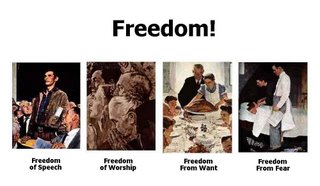Those words were penned in 1857. They appear in Chief Justice Roger Taney's opinion for a divided Court in Dred Scott v. Sandford, an infamous opinion that invoked the majestic Due Process Clause to uphold one human's right to hold another in bondage. The Dred Scott decision declared that no "descendants of Africans [imported into the United States], and sold as slaves" could ever become citizens of the United States.
While the Civil War and the Thirteenth, Fourteenth, and Fifteenth Amendments to the U.S. Constitution reversed the Dred Scott judgment, U.S. jurists and political actors today divide sharply on the propriety of looking beyond our nation's borders, particularly on matters touching fundamental human rights. Some have expressed spirited opposition. Justice Scalia counsels: The Court "should cease putting forth foreigners' views as part of the reasoned basis of its decisions. To invoke alien law when it agrees with one's own thinking, and ignore it otherwise, is not reasoned decisionmaking, but sophistry."Another trenchant critic, Seventh Circuit U.S. Court of Appeals Judge Richard Posner, commented not long ago: "To cite foreign law as authority is to flirt with the discredited . . . idea of a universal natural law; or to suppose fantastically that the world's judges constitute a single, elite community of wisdom and conscience." Judge Posner's view rests, in part, on the concern that U.S. judges do not comprehend the social, historical, political, and institutional background from which foreign opinions emerge. Nor do we even understand the language in which laws and judgments, outside the common law realm, are written.
And one not-so-small concern - they fuel the irrational fringe. A personal example. The U.S. Supreme Court's Marshal alerted Justice O'Connor and me to a February 28, 2005, web posting on a "chat" site. It opened:Okay commandoes, here is your first patriotic assignment . . . an easy one. Supreme Court Justices Ginsburg and O'Connor have publicly stated that they use [foreign] laws and rulings to decide how to rule on American cases.
This is a huge threat to our Republic and Constitutional freedom. . . . If you are what you say you are, and NOT armchair patriots, then those two justices will not live another week.
Nearly a year has passed since that posting. Justice O'Connor, though to my great sorrow retired just last week from the Court's bench, remains alive and well. As for me, you can judge for yourself.
Then she argues with Justice Scalia:
The U.S. Constitution, Justice Scalia has remarked, contains no instruction resembling South Africa's Section 39 prescription. So U.S. courts, he thinks, have no warrant from our fundamental instrument of government to consider foreign law. I would demur to that observation. Judges in the United States are free to consult all manner of commentary - Restatements, Treatises, what law professors or even law students write copiously in law reviews, for example. If we can consult those writings, why not the analysis of a question similar to the one we confront contained in an opinion of the Supreme Court of Canada, the Constitutional Court of South Africa, the German Constitutional Court, or the European Court of Human Rights?
Then she implies that the US has tortured detainees:
Later in December, recognizing the nation's obligations under the Convention against Torture, the U.S. Congress banned cruel, inhuman, and degrading treatment of detainees in U.S. custody. The legislation, however, stops short of explicitly banning evidence elicited by torture from consideration by a military tribunal charged with determining whether a detainee is an enemy combatant.
Then she states that a treaty overrides the US Constitution:
I looked to two United Nations Conventions: the 1965 Convention on the Elimination of all Forms of Racial Discrimination, which the United States has ratified; and the 1979 Convention on the Elimination of All Forms of Discrimination Against Women, which, sadly, the United States has not yet ratified. Both Conventions distinguish between impermissible policies of oppression or exclusion, and permissible policies of inclusion, "temporary special measures aimed at accelerating de facto equality." The U.S. Supreme Court's decision in the Michigan Law School case, I observed, "accords with the international understanding of the [purpose and propriety] of affirmative action." (South Africa's Constitution is clear on that matter; Section 9(2) provides: "To promote the achievement of equality, legislative and other measures designed to protect or advance persons, or categories of persons, disadvantaged by unfair discrimination may be taken.")






No comments:
Post a Comment